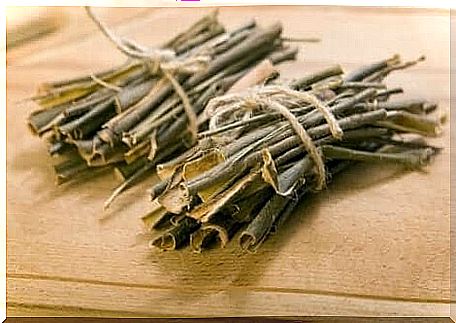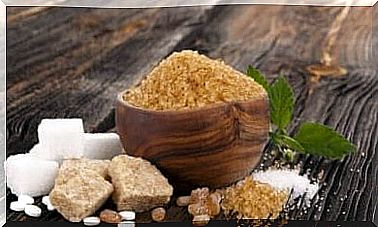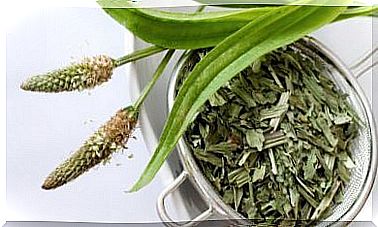Treatment Of Rheumatoid Arthritis Pain With Medicinal Plants

Medicinal plants have been used since ancient times as an additional aid in the treatment of pain caused by rheumatoid arthritis. Although rheumatoid arthritis involves several medications, symptoms can also be controlled with certain anti-inflammatory plants. In this article, we’ll explore how to treat rheumatoid arthritis pain with medicinal plants.
More and more patients are interested in these natural therapies, which are often seen as an effective aid in controlling severe pain episodes. In many cases, however, there is no scientific evidence of the benefits associated with them. Therefore, you should always ask your doctor about possible side effects or interactions with other medicines before use .
With this in mind, we will now take a closer look at rheumatoid arthritis and how to cure rheumatoid arthritis pain with medicinal plants.
What is rheumatoid arthritis?

Rheumatoid arthritis is an autoimmune disease that causes joint pain and weakening. It most often affects both sides of the body and develops gradually. Thus, if one joint becomes ill, the same joint on the opposite side of the body also becomes ill.
Due to the course of symptoms, the disease is considered chronic. Many patients even lose their ability to perform everyday tasks. Pain may also occur from time to time, with intense periods of pain and painless periods alternating.
Symptoms of rheumatoid arthritis
The symptoms of rheumatoid arthritis can be mild or severe depending on the severity of the disease’s progression. Pain crises can usually be avoided if patients are diagnosed in time. So even if the pain disappears in the beginning, it is recommended to go to the doctor.
Symptoms of rheumatoid arthritis include:
- Joint pain on one or both sides of the body
- Swelling of the joints
- Stiffness
- Loss of joint function
- Prolonged fatigue
Treatment of rheumatoid arthritis pain with medicinal plants
Natural treatments made from medicinal plants are a good additional help in managing the pain caused by rheumatoid arthritis. Although there is only empirical evidence of their effectiveness, many patients claim to have improved after using them.
Therefore, if your doctor finds that there are no disadvantages or obstacles to the use of herbs, they may be a good option to improve the treatment of the disease. However, the most important thing is to first make sure that they are not associated with side effects or interactions with other drugs.
1. Aloe Vera

Aloe Vera is one of the most popular medicinal plants for the treatment of diseases. It has been known since ancient times for its nutritional benefits, but it is still a viable alternative treatment for hundreds of different ailments.
Among these benefits, it is important to highlight its calming effect. External use of the gel it contains may help control the pain caused by rheumatoid arthritis. It also stimulates blood circulation and prevents skin problems such as psoriasis and allergies.
How to use it
- Separate a fair amount of aloe Vera gel from the leaf of the plant and gently rub it into the joints.
- Repeat the treatment every night before going to bed.
3. Perennial nail
The Nile Rheumatism Association believes that potato nail cilantle may be helpful in relieving inflammation and pain. Thanks to its anti-inflammatory and pain-relieving properties, potato nail cilant can help control the pain caused by rheumatoid arthritis. According to the association, one study has shown that it can help reduce inflammation caused by the disease.
How to use it
- The benefits of the plant are available in several ways. It is found firstly as extracts or creams for external use.
- You can also make tea from one teaspoon of the plant in a cup of boiling water. Drink twice a day.
- You can also buy it as tablets or capsules to be taken as instructed.
3. Treatment of rheumatoid arthritis pain with ginger

One of the best natural treatments to reduce the symptoms of rheumatoid arthritis is undeniably ginger. Because it contains a significant amount of gingerol, it has an anti-inflammatory effect that reduces swelling, stiffness and pain. Its effects on rheumatoid arthritis patients have also yielded promising results in studies.
How to use it
- The traditional way to use this spice is in tea, which is very easy to make. Just pour a teaspoon of ginger into a cup of boiling water and drink two to three times a day.
- Ginger is also available as supplements and tablets.
- Its oil can be applied topically to the skin.
5. Treatment of rheumatoid arthritis pain with green tea
While green tea grew in popularity due to its slimming properties, it is also a great help in managing the pain caused by rheumatoid arthritis. This is due to its antioxidant effect and anti-inflammatory compounds that help protect the joints.
How to use it
- You can enjoy it as tea, tablets or extracts. The correct dose will be determined by your doctor.
5. Treatment of rheumatoid arthritis pain: willow bark

This medicinal plant is one of the best known plants for fighting inflammation. Its extracts contain analgesic and anti-inflammatory agents. It has been used since ancient times to treat joint problems, headaches or neck pain, among other things.
How to use it
- You can make tea from willow bark by putting it in a teaspoon of a cup of water. It should preferably be drunk twice a day.
- Another option is to buy tablets or supplements (following the dosing instructions).
Warning: Do not use too much willow bark. Overdose can cause rash and other signs of inflammation. It should not be taken if you are allergic to aspirin or are taking anticoagulants.
Finally
Herbal medicine has gained more acceptance among doctors in recent years. Some doctors may even suggest certain plants as extra help in treating rheumatoid arthritis. However, they are not a substitute for prescription drugs. Their potential effect should also be first assessed with your doctor.









